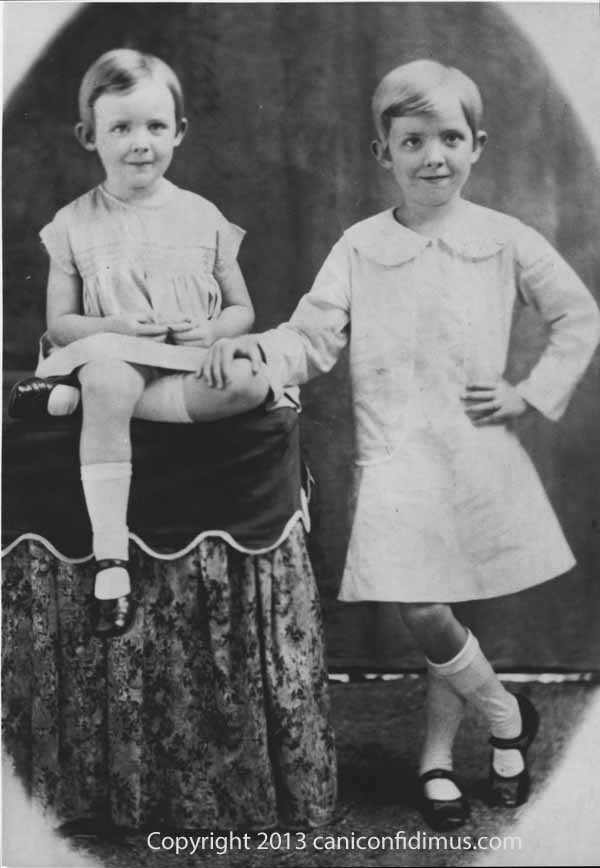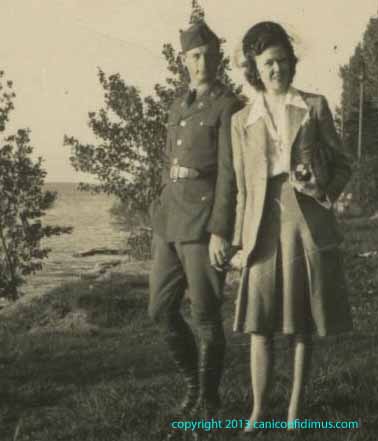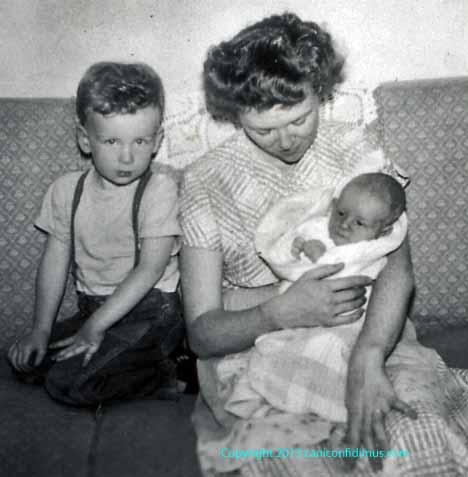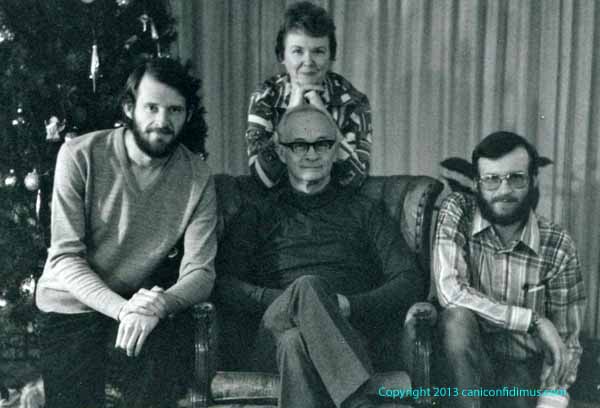The song that was my mother’s life ended Tuesday afternoon.
I thought of a lot of words for this post a couple of weeks ago when I woke up at about 3 am and couldn’t go back to sleep again. Then I was thinking about something I called “the story that was my mother’s life.” But a little while ago as I walked the dog down the driveway, I was thinking about this post and the words that I thought were “the song that was my mother’s life.” I don’t know where “song” came from, but I figured that must be the right word.

Sisters, Doris and Beatrice Kennedy, sometime in the 1920’s. I don’t know whether this is in south Georgia or Akron, Ohio. This is one of my all-time favorite photographs.
And really, it is the right word, because my mother loved singing. Many years ago when I was just a teenager I told her I felt like I was living in a musical comedy, because every time I asked her a question, she responded by singing words from a song she knew that were actually appropriate for the question.
When I was a boy it seemed like she was singing or humming all the time. To this day, any time I hear a woman singing or humming to herself, I get a flashback to my childhood, and I feel kind of like crying. My mother sang her whole life. She sang in her high school chorus. She was good enough that someone expected her to become an opera singer. But that was in the Great Depression, and not many girls in Akron went to college or sang in the opera. When she graduated from high school, after a visit to her Aunt Grace in Rome, Georgia, my mother went to business school.

Vaughan and Doris Paris, sometime in the 1940s. This is almost certainly after they were married and before my father went overseas in WW II
While on that visit to Rome, she worked behind the candy counter at a five and dime store, probably S.S. Kresge. She met the Paris sisters, Francis and Alva Ruth, and also their brother, Grady Vaughan. One day Bo, as he was known to his family, screwed up his courage, circled the candy counter a couple of times, and asked her out. One thing led to another, and in November 1943, they were married. She followed him for a while during his Army training, and when he shipped overseas to Europe, she went back home to Akron. After the war, they lived in Ohio long enough to have their first child, Henry, and then moved back to my father’s home in Rome, where I was born.

My brother Henry and my mother, holding me. This must have been shortly after May, 1950, when I was born.
When my brother and I were old enough to start school, my mother got a job as a secretary in the Celanese textile plant in Rome. She worked there for the next 20 years, until they closed the plant. She was one of the last employees to walk out the gate. During those 20 years, she worked all day, and when she got home, she did all the things for her family that she had done before she started working. Many time she came home with a head-splitting, nauseatingly-painful migraine headache. She did all the things she needed to do for a husband and two sons, went to bed, and woke up the next morning, still with a headache.
But during it all, she sang. She directed her church choir for a long time, and after they got a minister of music, she sang in the choir. She sang in the community chorus. She acted for the Rome Little Theatre. And she danced.
And they traveled. They got an Airstream trailer and went all over the country, from Florida to New England, from the Ohio River Valley to the West Coast. They went up into Canada and they spent a winter in Mexico.
And she had health problems. Once she thought she was going crazy, and all the doctors didn’t help, until she found one who diagnosed her hypothyroidism and prescribed the supplement which made her life livable again. She remained loyal to him as long as he practiced medicine. She had a hysterectomy, and gall bladder surgery, back when they opened up your entire abdomen so the doctor could reach in with his hands. She had a shoulder replacement, and had the cartilage scraped out of her knee. And then, about 14 years ago, she had an acoustic neuroma removed from behind her right ear, and the right side of her face was partially paralyzed, and she lost her sense of balance. She was plagued by falling for the rest of her life. She fell outside in the front yard. She fell in her bedroom. She fell in the bathroom, in the kitchen, and in the hall. She hit her back, her shoulder, and her head. We really don’t know how many times she fell, but it was a lot.

The Paris family, Mark, Doris, Vaughan and Henry, Christmastime, probably in the mid-to late-1970’s, at home in Rome, Georgia. We were all young then, and life looked pretty good.
And then a few weeks ago, after her 90th birthday, she had a stroke and fell, or fell and had a stroke, or something. Anyway, she went into the hospital, where they found that not only had she had a stroke, but her bone marrow had also given up producing blood. There was nothing to do. The doctors sent her home with hospice care to die.
And Tuesday, with her family around her, she did just that.
The last three weeks of my mother’s life were not pleasant. In the hospital she became marginally responsive, spending most of the time sleeping and talking in her sleep. The food was not good, but at least she ate. When she came home after a week, she was bedridden, but responsive. She got to the point that the only way she could answer a question was to blink her eyes. And then she got to the point that she couldn’t do even that. She spent most of the last week or so with her eyes closed. I don’t know whether it was sleep or something deeper. She had not eaten or drunk anything for the last seven or eight days. The only time she reacted was when she was fairly strongly stimulated physically, like when they had to give her a bath. I had to listen to the moaning over the remote monitor. Later, towards the end, she started having bladder spasms. Her face and her body registered pain. I hope very deeply that she was not conscious of that pain. She was getting morphine regularly, so maybe she wsn’t. In any event, it did not last long. Her breathing became shallow and eventually simply stopped.
Before she died, and before she stopped responding, I told her that I loved her and that she was the best mother in the whole world. I think she understood that.
So it was a pretty ordinary life, full of the kinds of things that ordinary people who are lucky do and have. And it had an ending. It was not a “they lived happily ever after” kind of ending. That’s not an ending, that’s a middle, and I think her life was that kind of middle. The end is the point beyond which there is no more. And this is that point: The End.
I feel like a part of me is missing. It was like that when my father died 13 years ago. It’s hard to process. But at least when my father died, I still felt like I had a connection to him through my mother. Before she left the hospital, we were talking to a hospice nurse, and we mentioned that Mother had prescription coverage through my father’s America Postal Workers Union policy. I suddenly realized that when she was gone, I would never again see APWU in the mail; that connection would be gone. And now it is. And now I feel like I have lost my father again as well.
There is a connection that remains. It’s in my head. It’s not much, but it’s all I have, and as long as I can remember, I will.